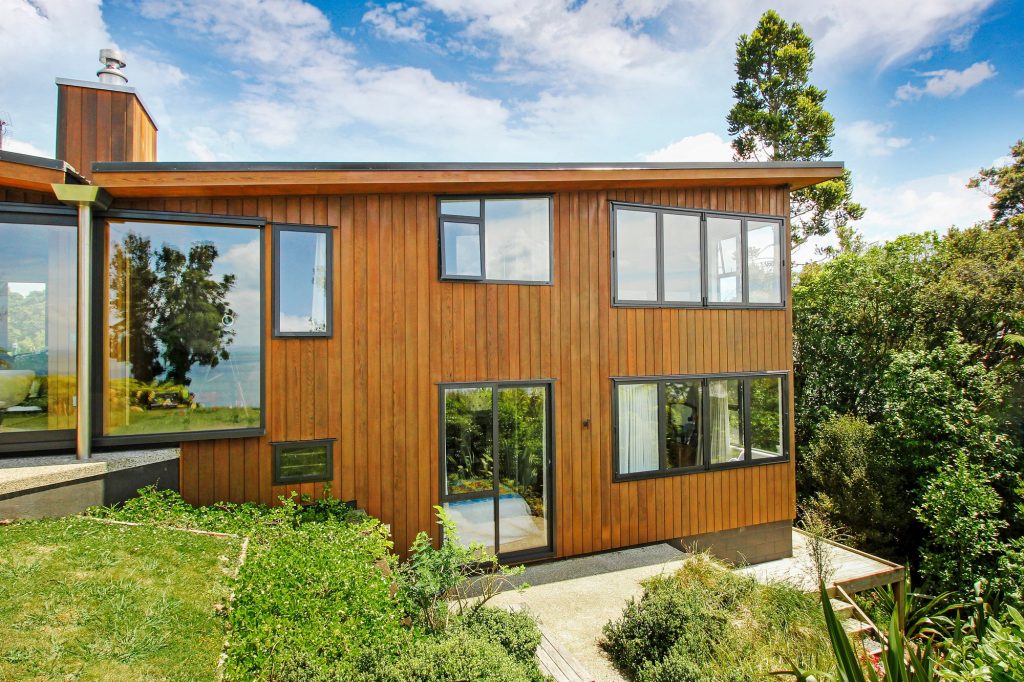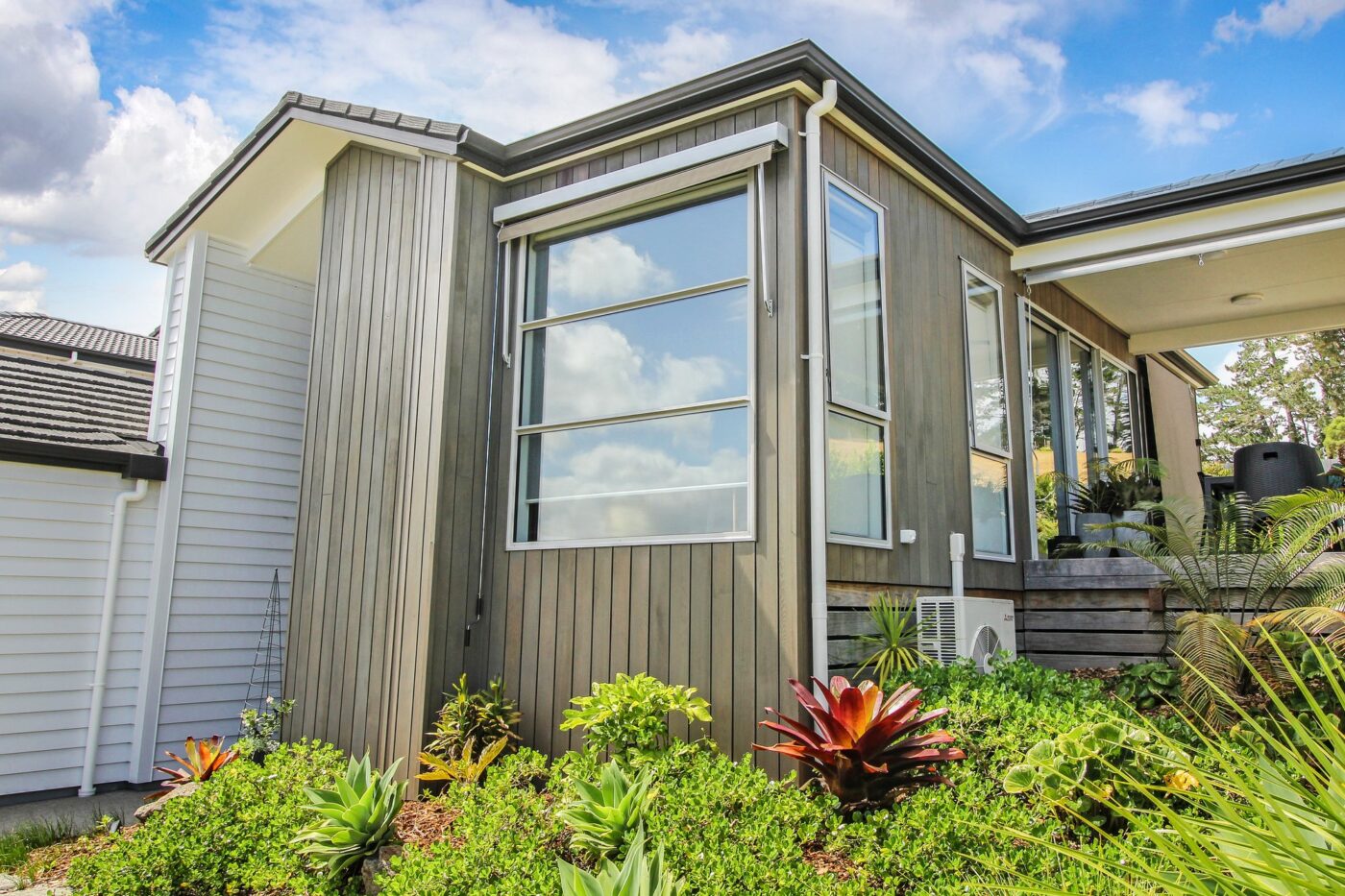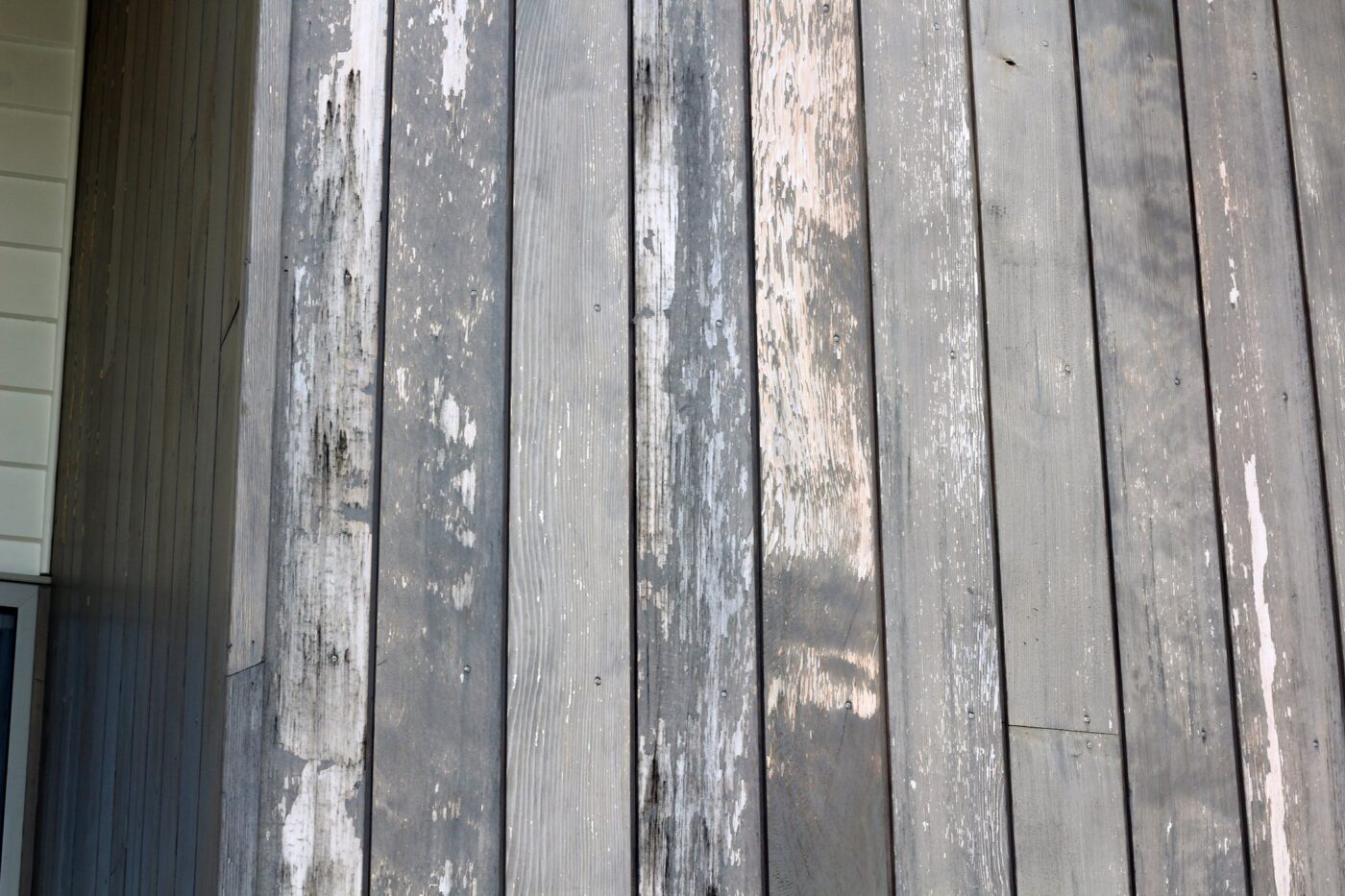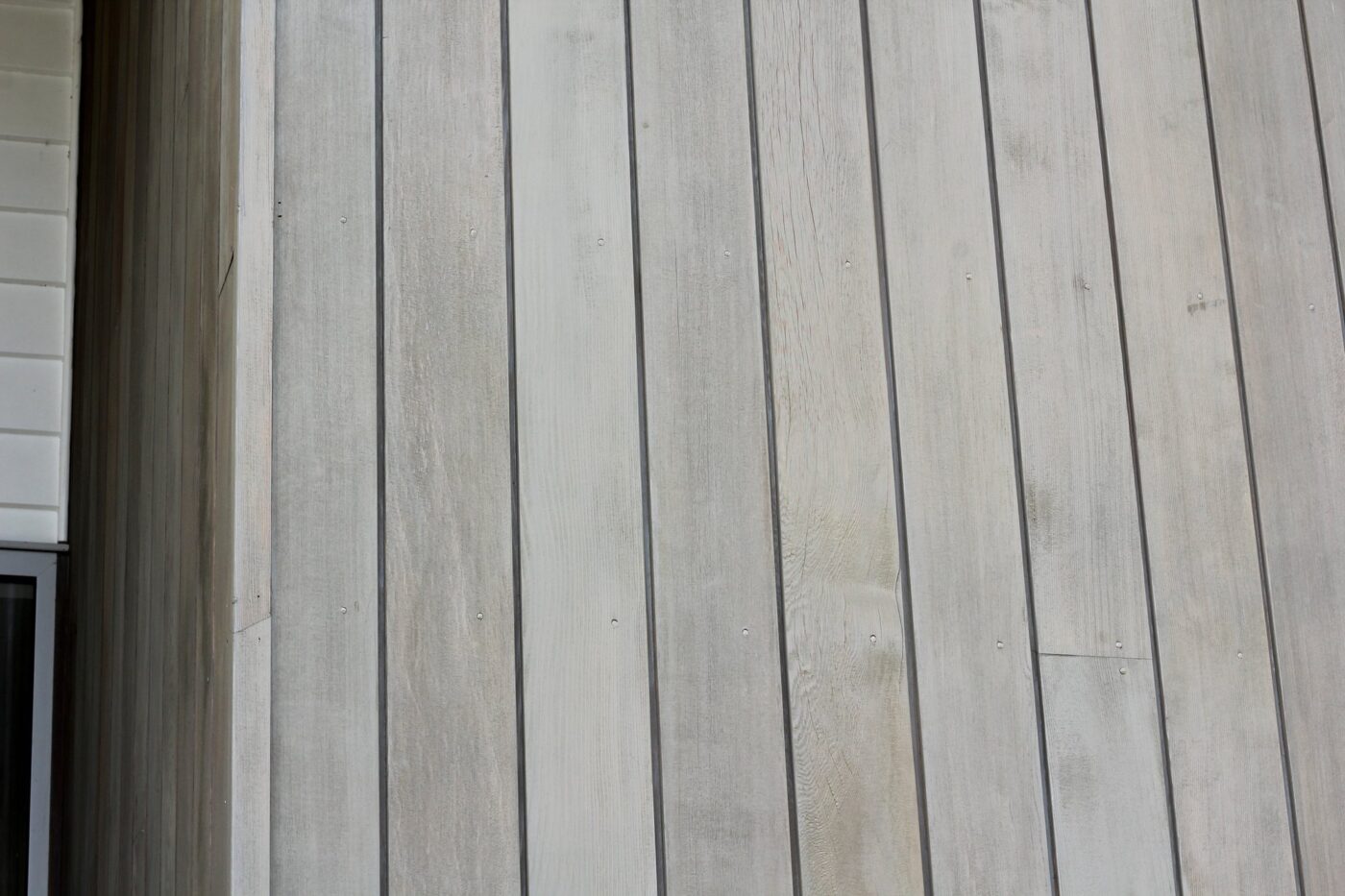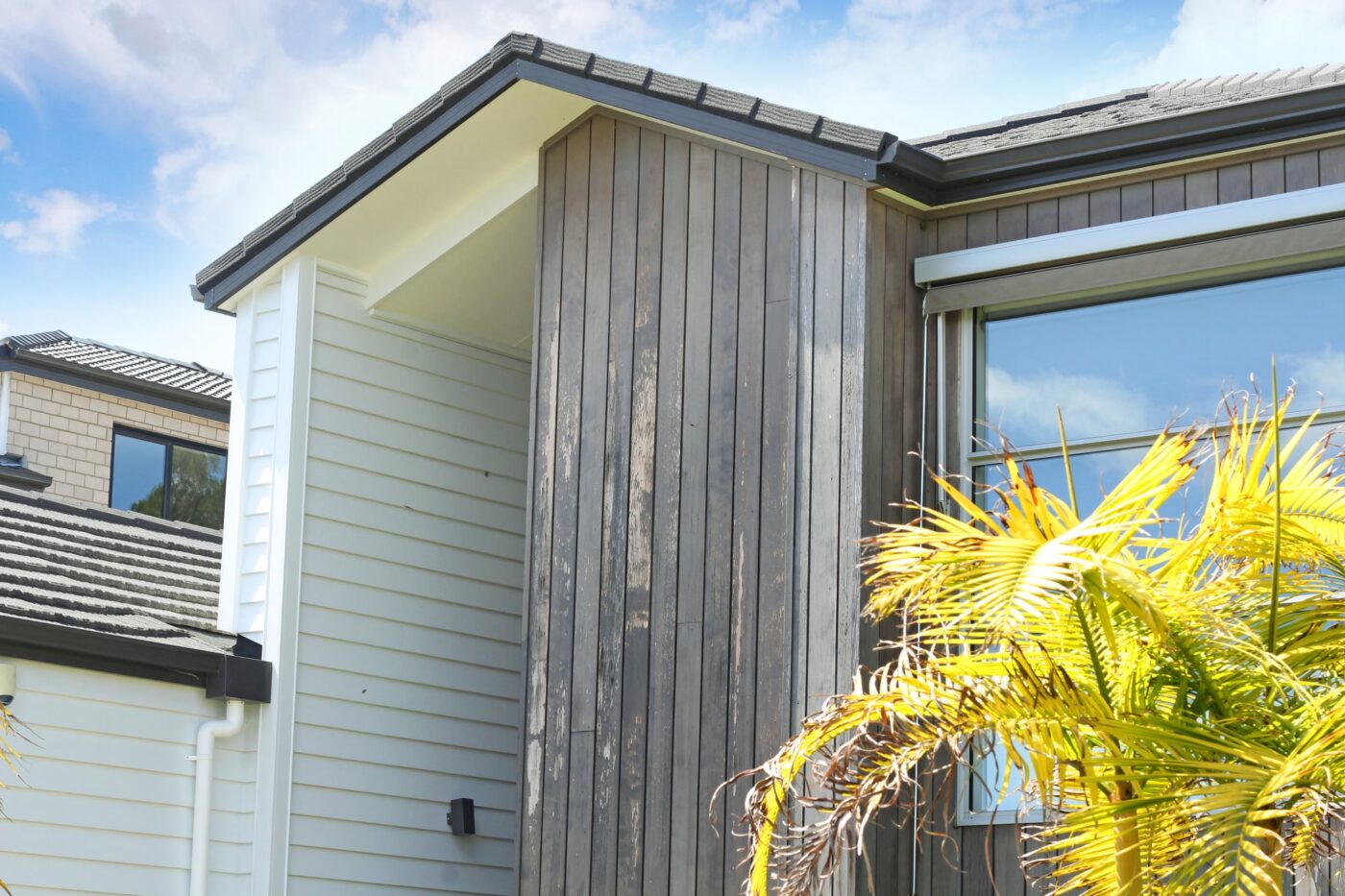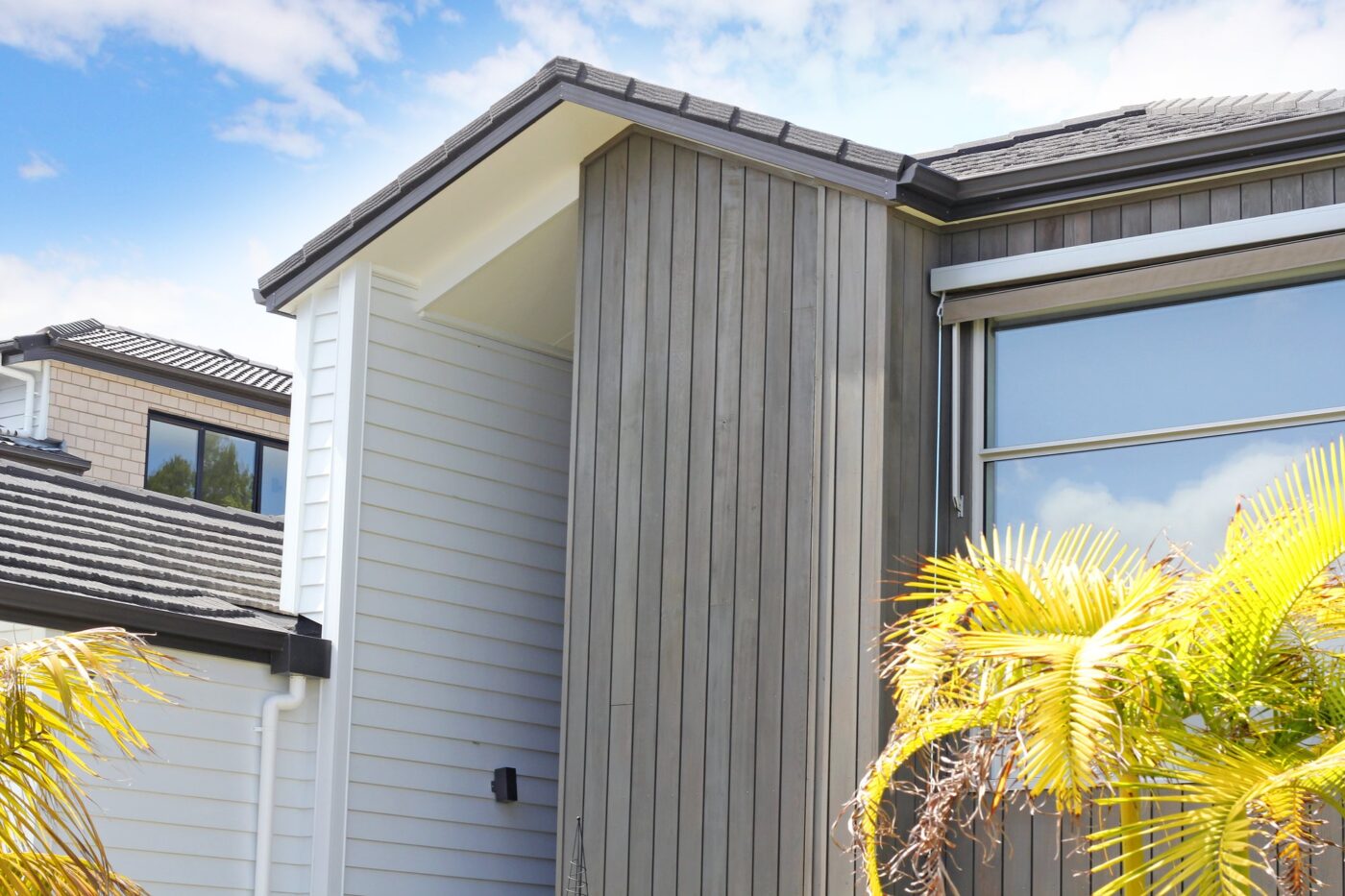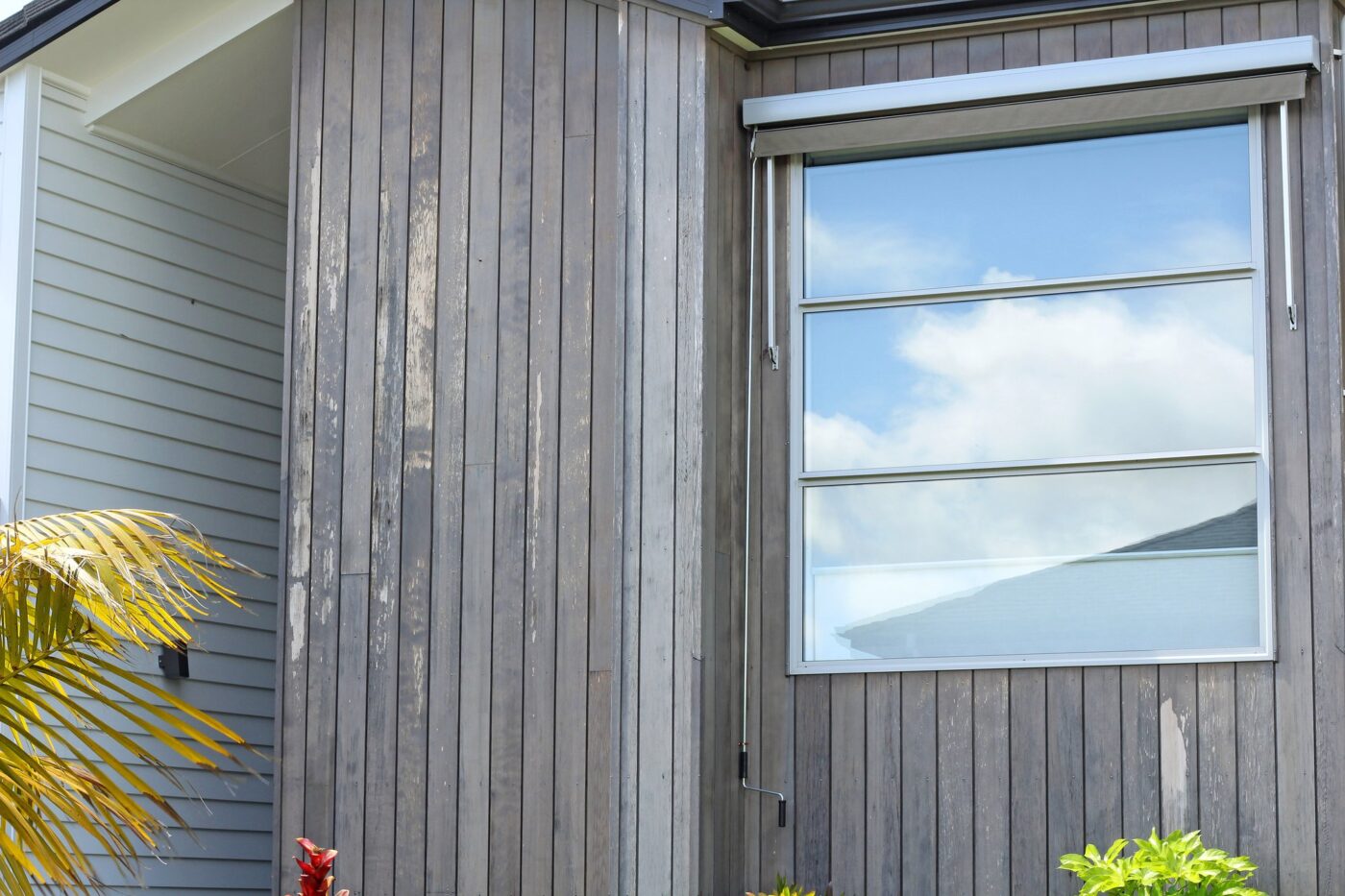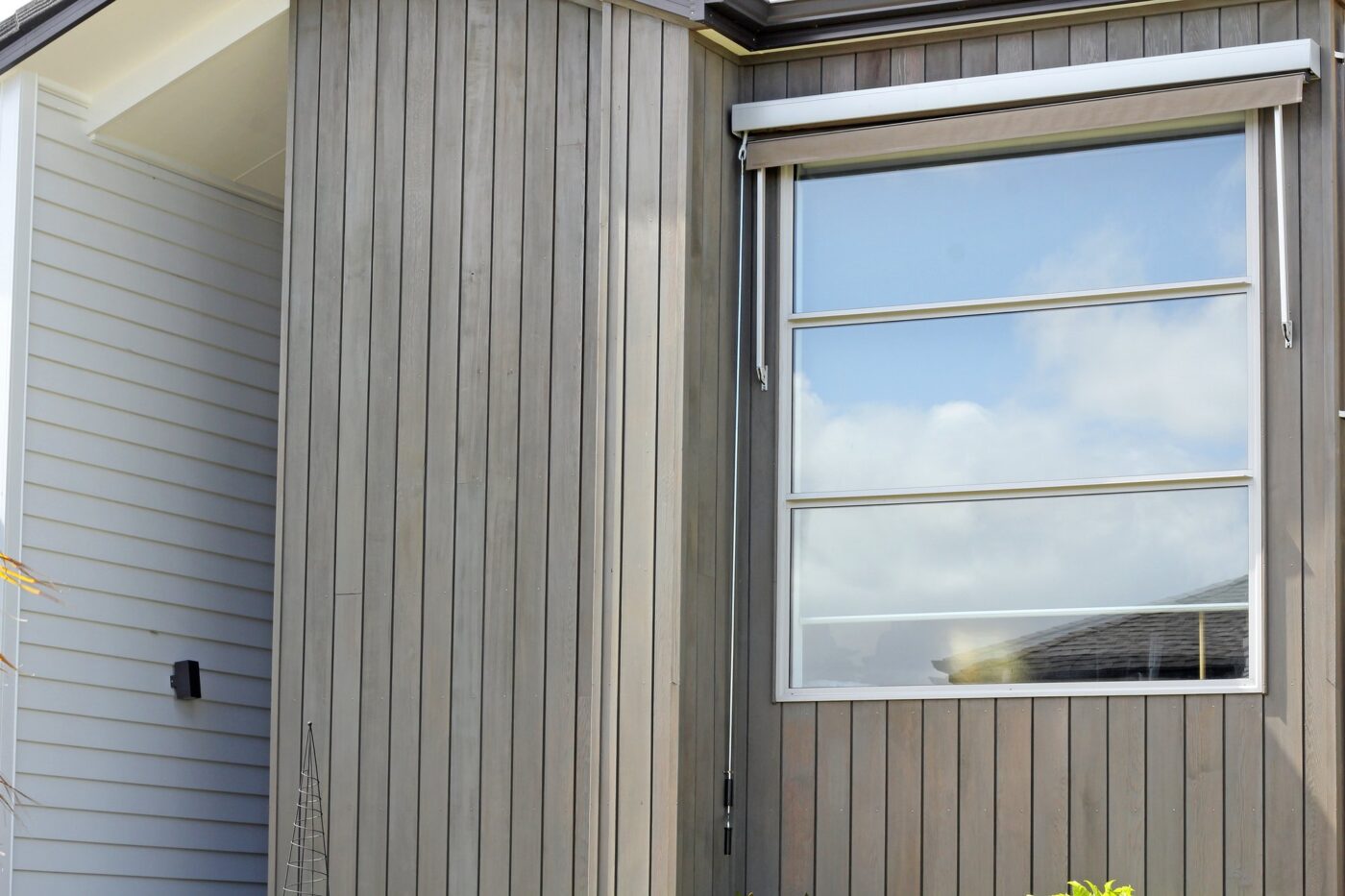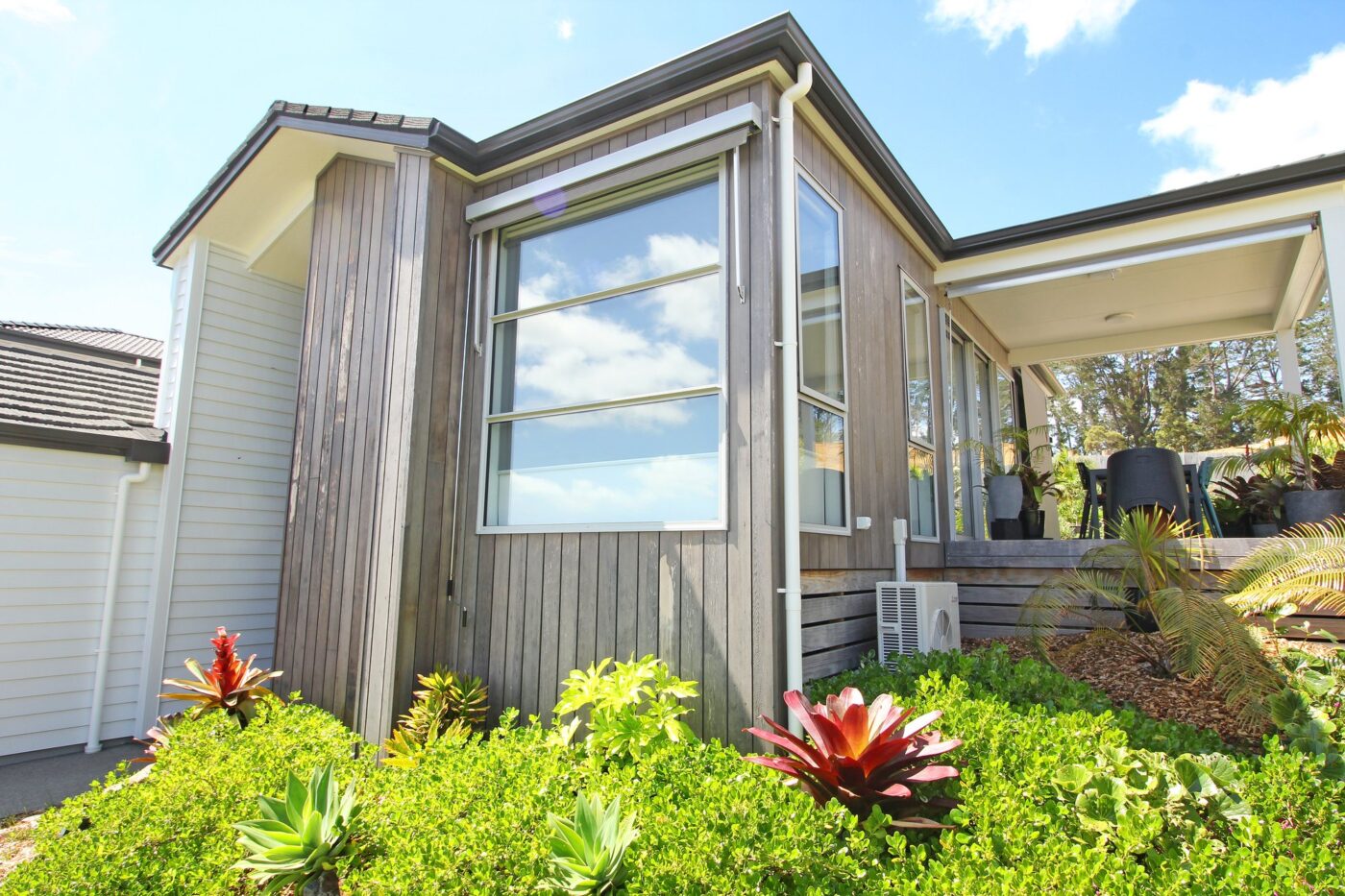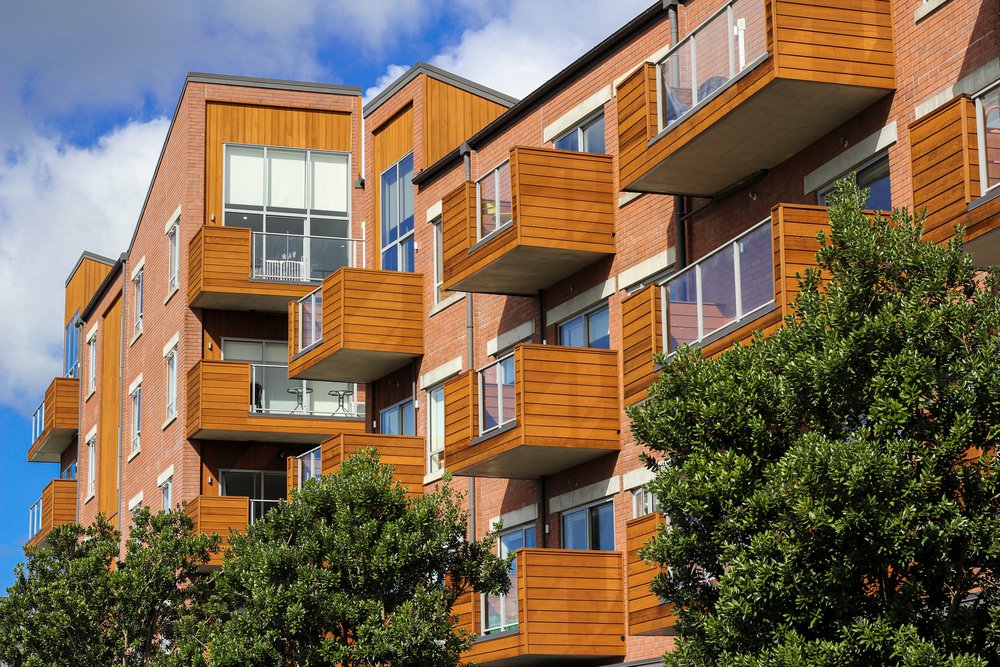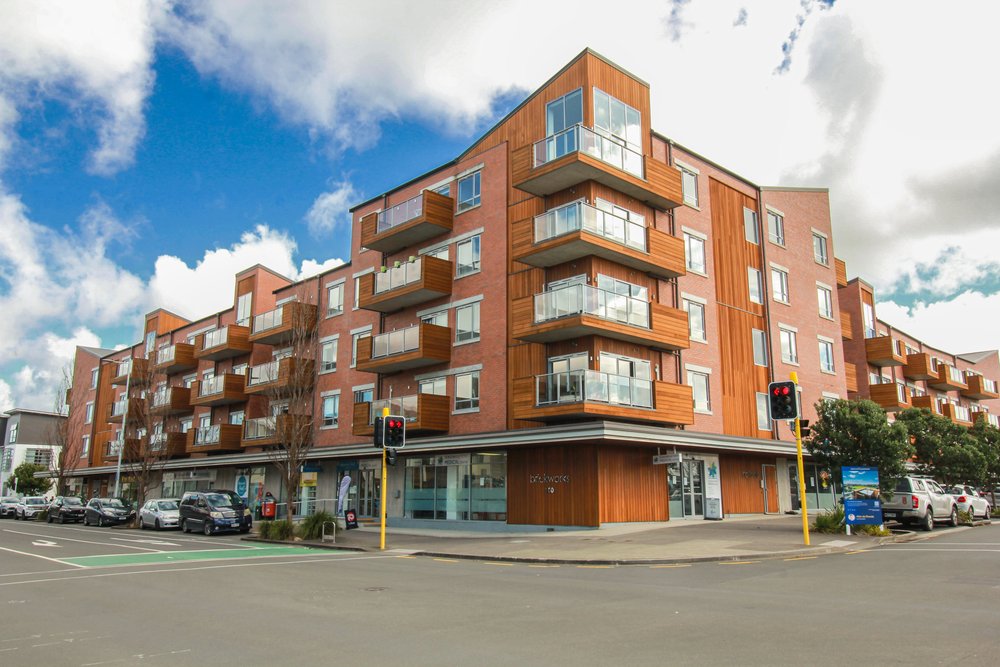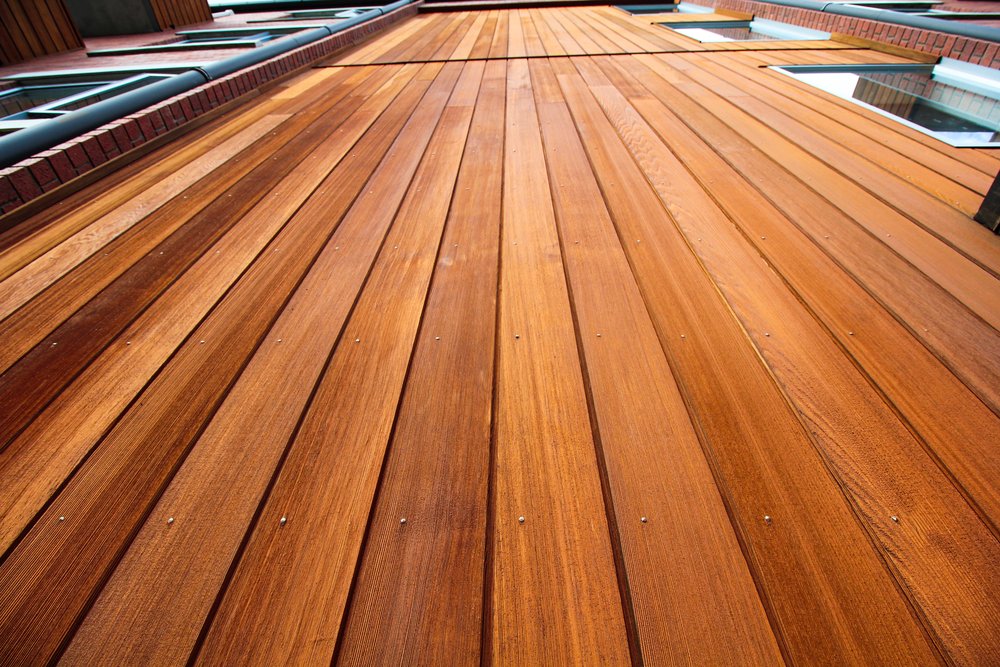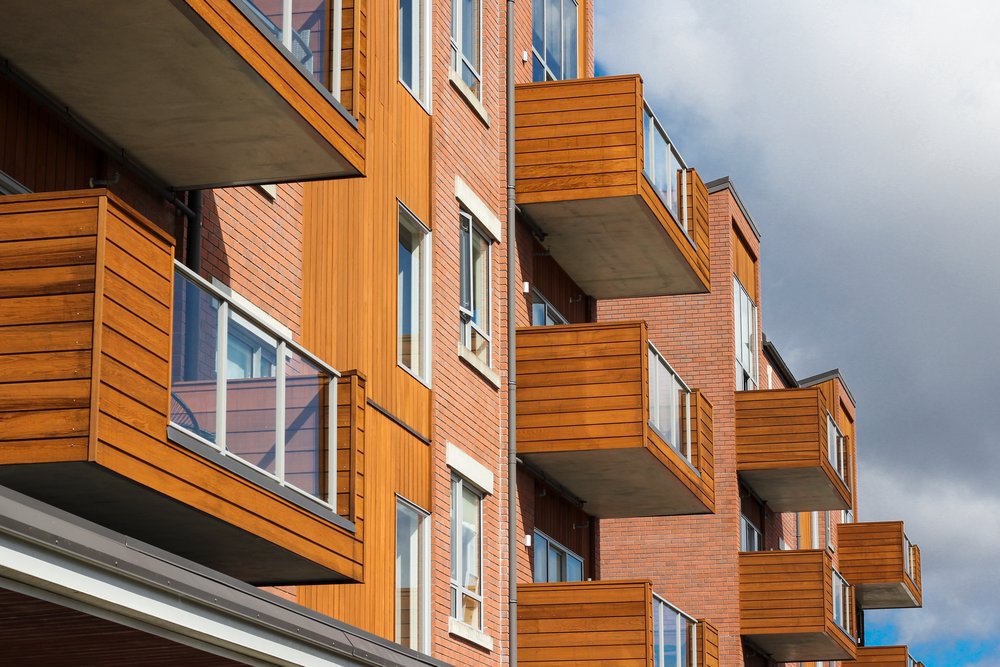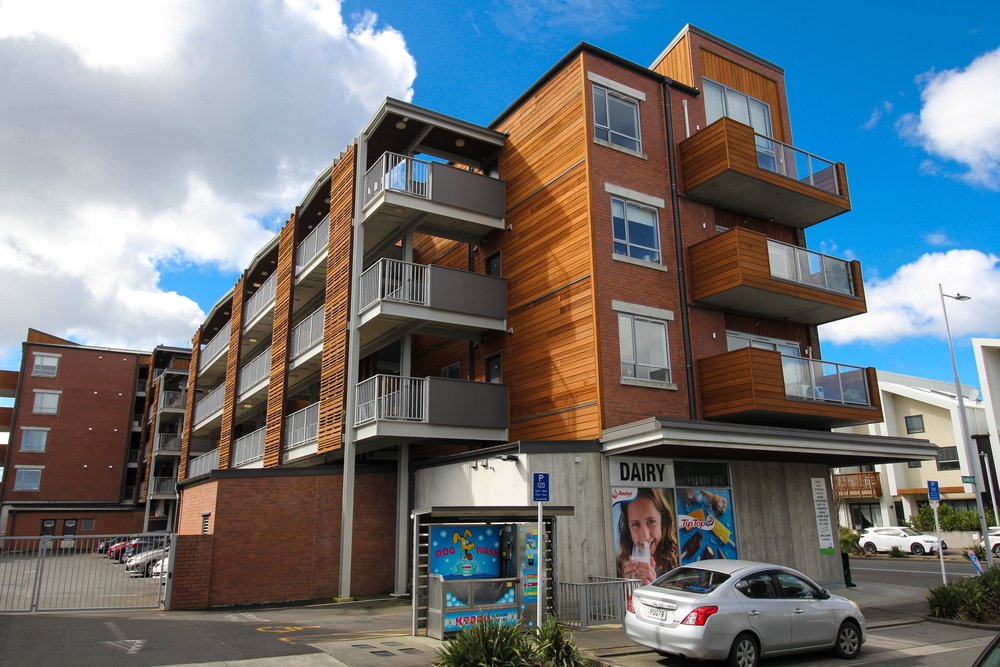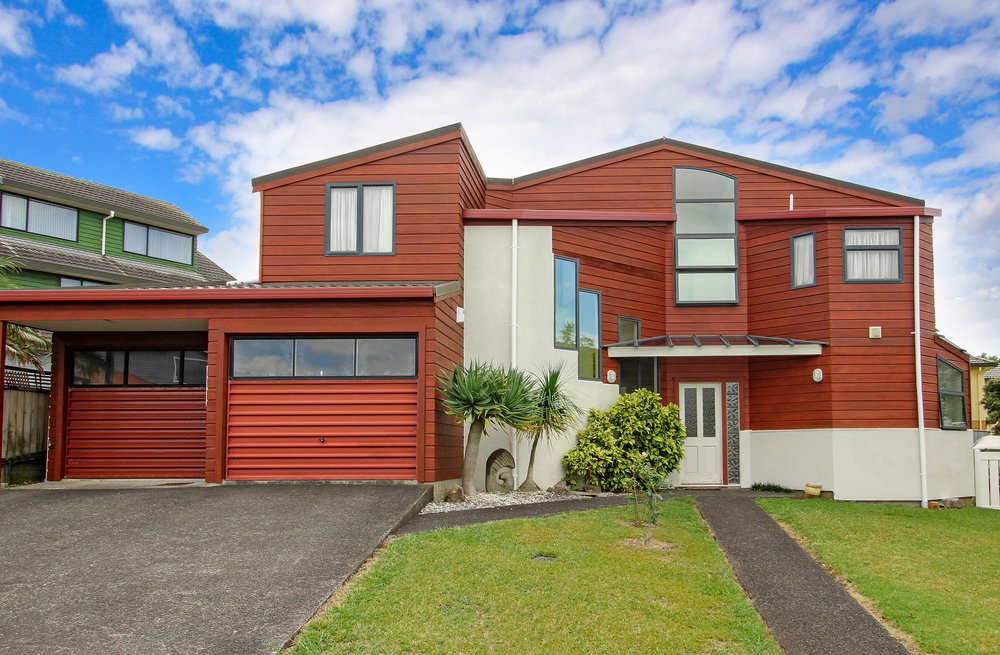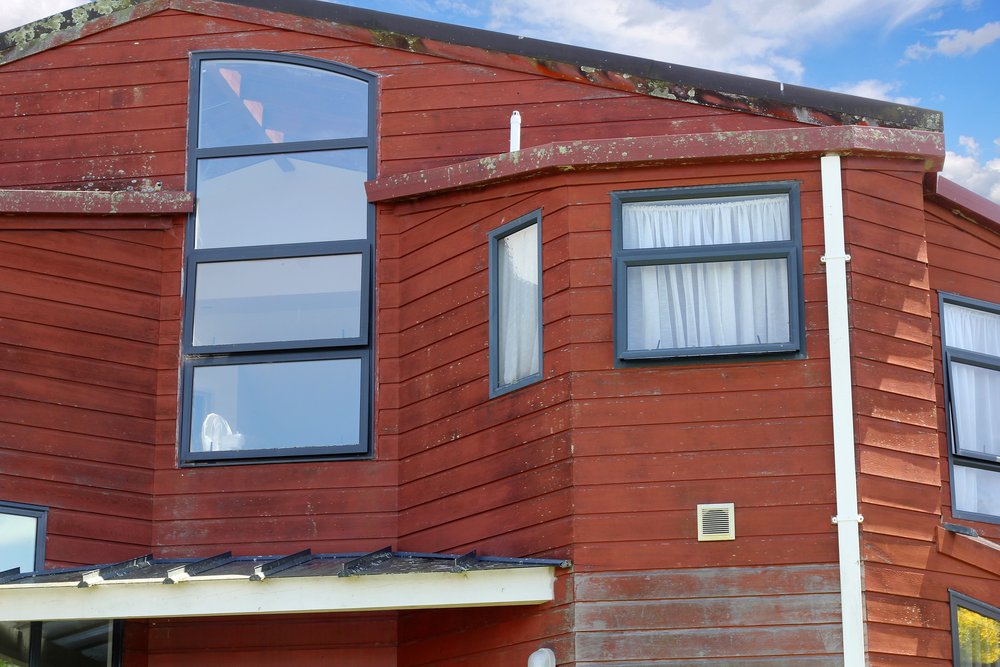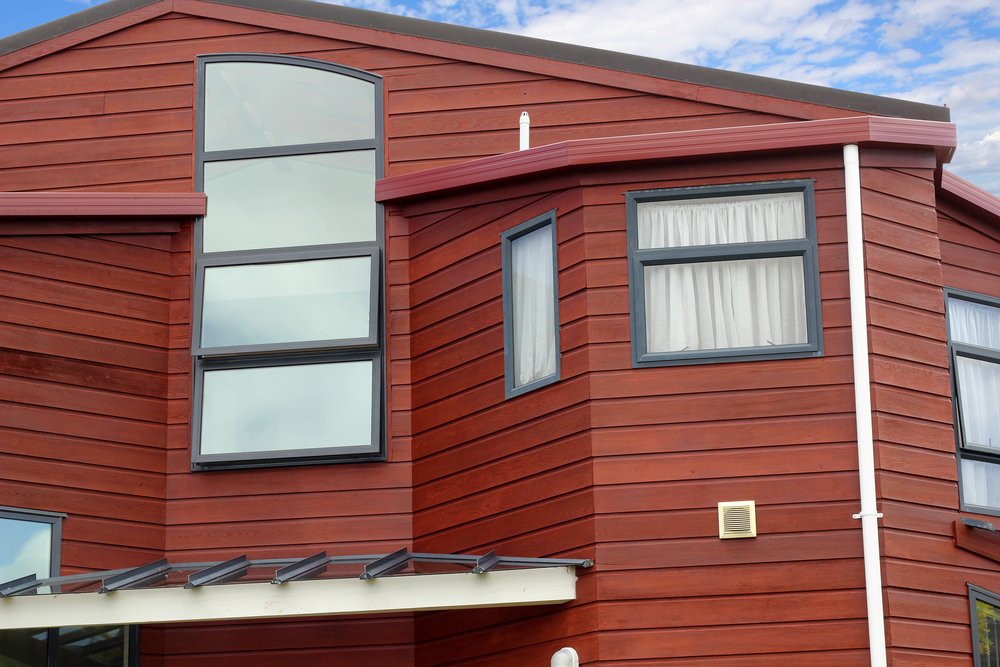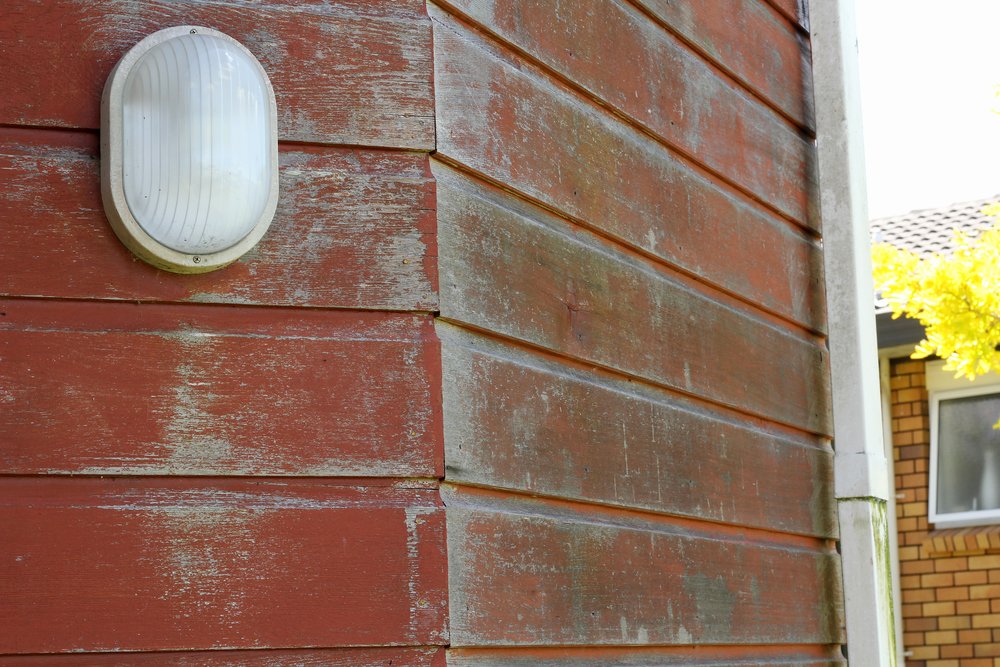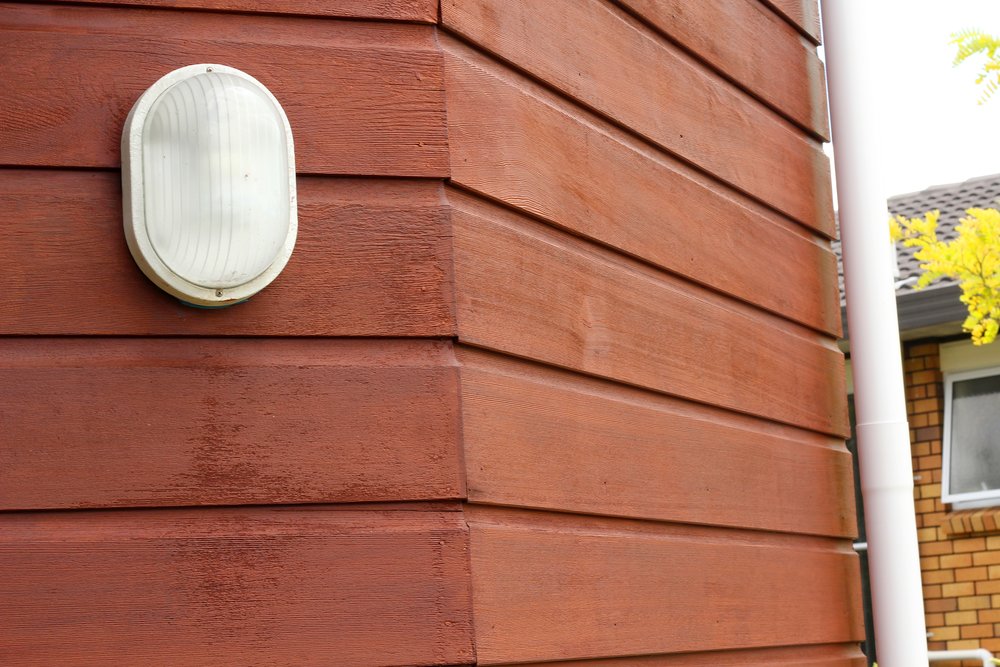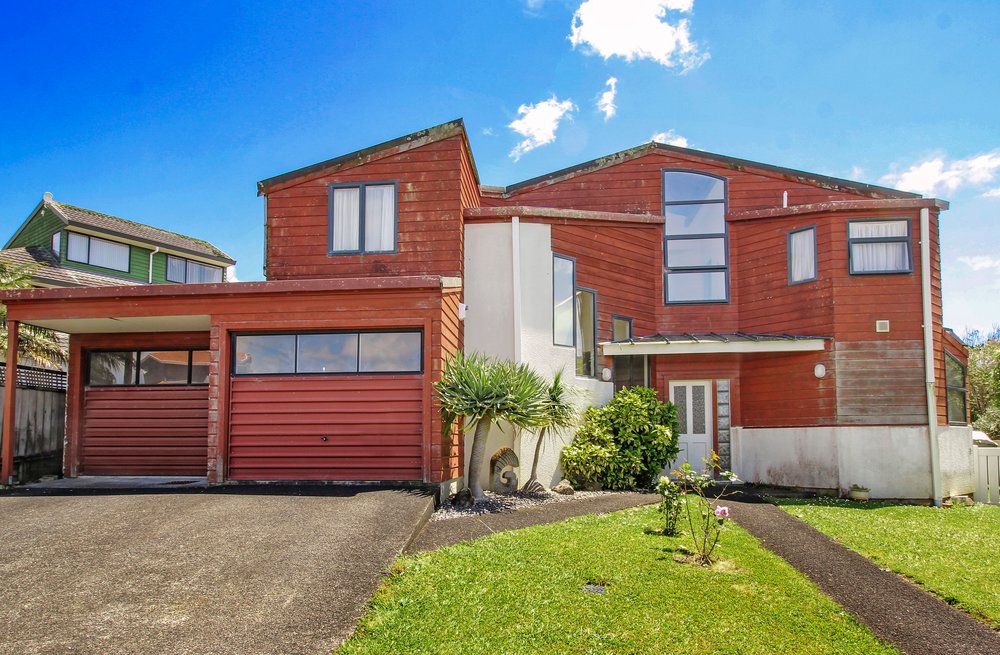This contemporary Cedar home, built in 2014, is located in Green Bay and surrounded by trees and leafy green foliage, beautifully accentuating the golden glow of the Cedar.
While the location is very pleasing to the eye, being surrounded by trees can increase the amount of airborne organic matter landing on the Cedar. The property is also north facing and receives plenty of sun throughout the year. These environmental factors make regular maintenance essential for the long-term health of the Cedar and to keep it looking clean and fresh all year round.
Thankfully, the owners of the property were aware of the Cedar maintenance requirements from the start and chose the right products, with the right Cedar maintenance plan.
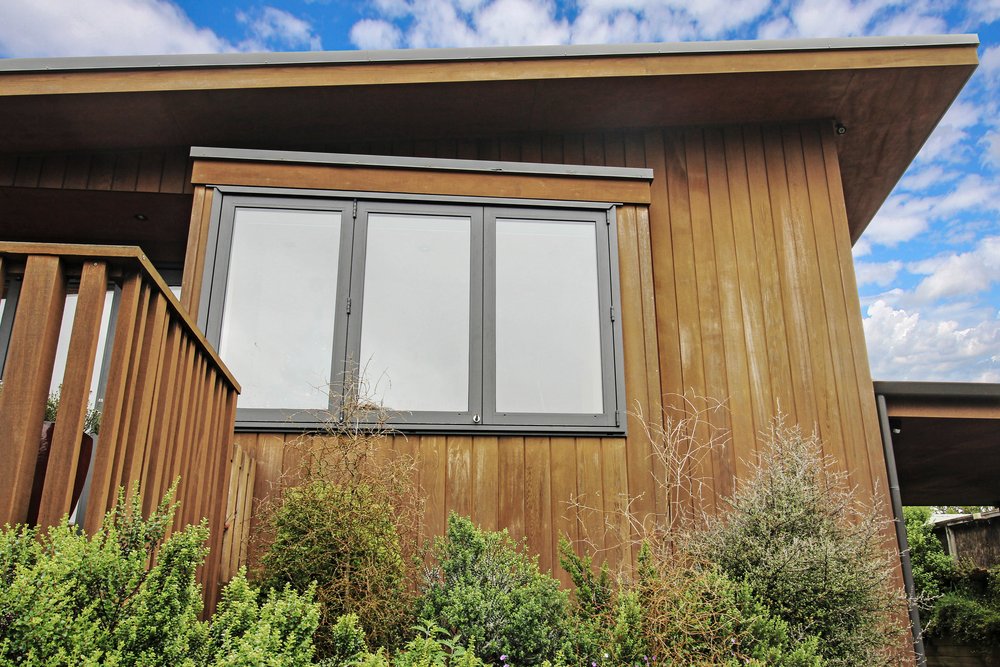
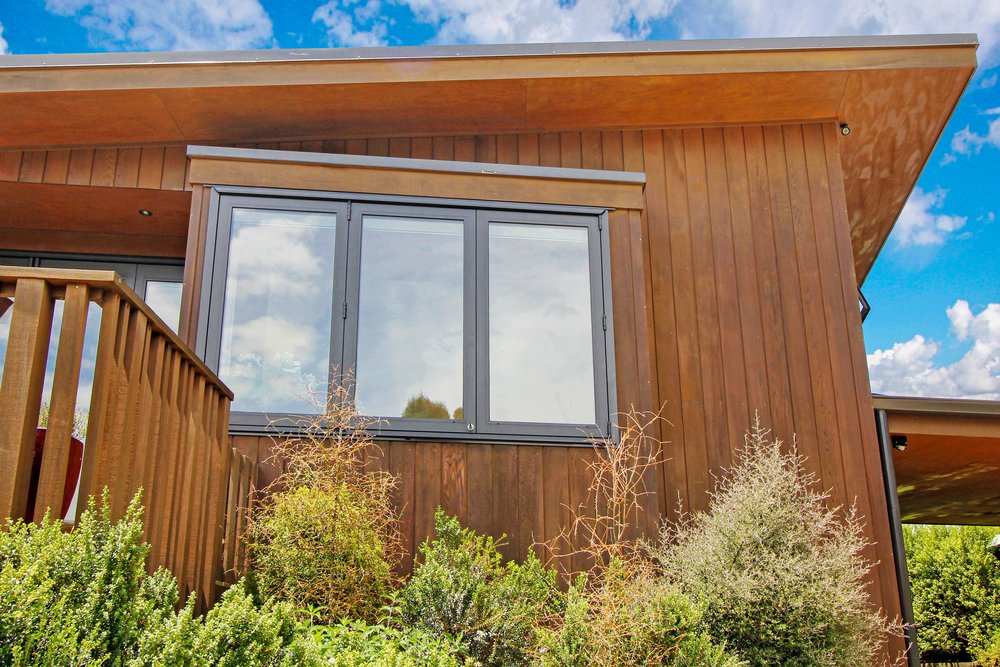
To understand the benefits of a regular maintenance plan and how it can save you money over the long term, we need to first look at the history of the property.
Maintenance Timeline
In 2015, the homeowner asked us to visit the property and check over the health of the Cedar.
Although they had only moved in one year previous, the Cedar on newly built houses is often installed 3-6 months before the homeowner moves in, so the weathering process is already well under way.
Over the next 5 years, we maintained the house on 3 separate occasions:
- 2015 – Oxy-wash and recoat of the entire house.
- 2017 – Oxy-wash and recoat of the northern faces.
- 2020 – Oxy-wash and recoat of the northern faces.
The photos of the house were taken in 2020, after the last round of maintenance, and the work described below covers the regular maintenance undertaken in that period.
Cedar Maintenance Process
Upon first inspection, the Cedar had silvered in some areas and there was mould sitting around the windows. As the house is surrounded by bush, a build-up of organic matter was always going to be a factor. While the amount of mould and dirt wasn’t significant, the overall effect is unsightly and not great for the long-term health of the timber.
We started with a light oxy-wash to prepare the Cedar for treatment. Once clean of organic material, we recoated the northern faces of the house with a penetrating wood oil that matched the original treatment.
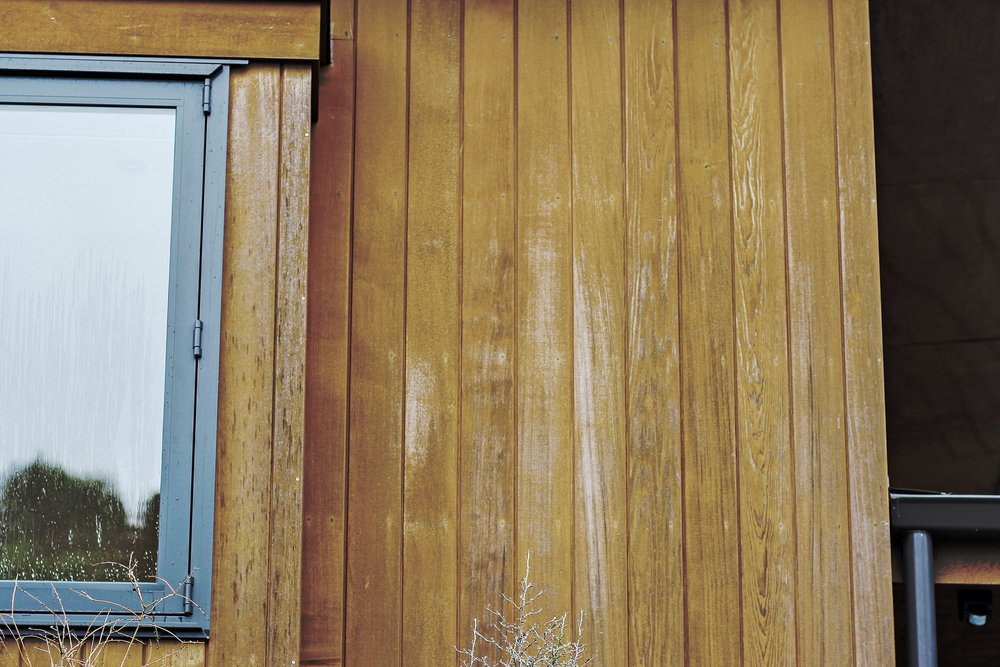
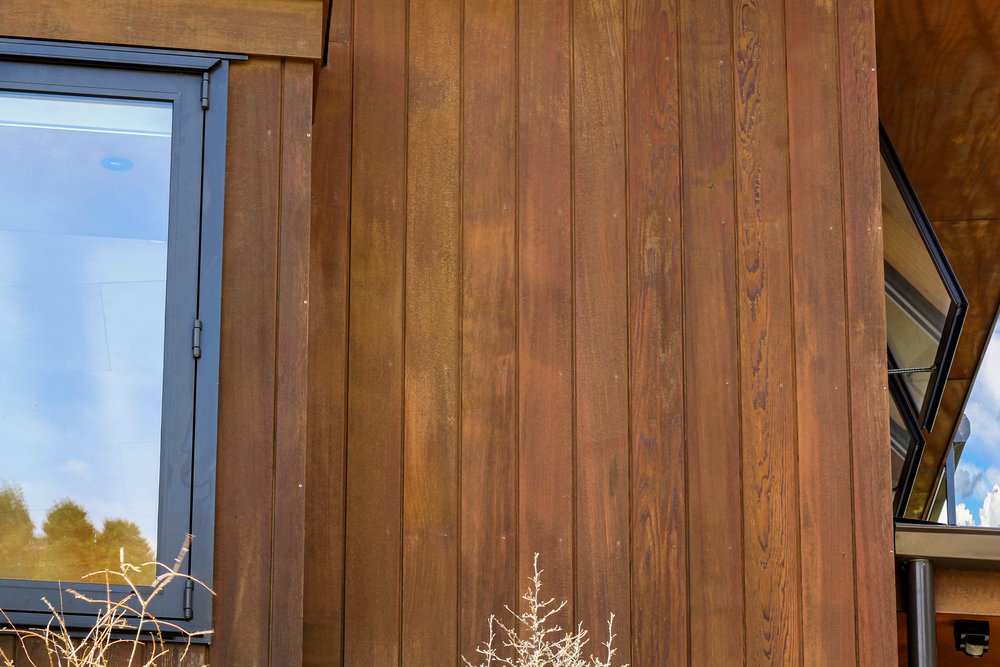
The original treatment used a light, golden-brown coloured oil to give the Cedar a natural finish that ties in with the joinery and the bush setting.
Lighter coloured oils have the same maintenance requirements as darker oils, however, they can help hide some of the natural weathering and make organic matter less noticeable. This can be useful in locations that are exposed to the elements, such as bush or coastal areas.
Cedar Maintenance Challenges
As the Cedar had originally been coated with a penetrating oil, ongoing maintenance was a straightforward process without any unforeseen challenges.
Compared to a film forming product such as a stain, a penetrating oil allows the Cedar to weather evenly and can usually be maintained with just a soft wash and a recoat of sun exposed areas.
As the house has 2 stories, the job also required mobile scaffolding, which was supplied and erected by the Cedar Technicians and included in the overall cost.
Ongoing Maintenance Requirements
Now that the whole house has been treated, ongoing maintenance becomes more affordable as only the sun-exposed faces need maintaining every 2-3 summers. The rest of the house may not need further maintenance for 5-7 years.
The Final Outcome
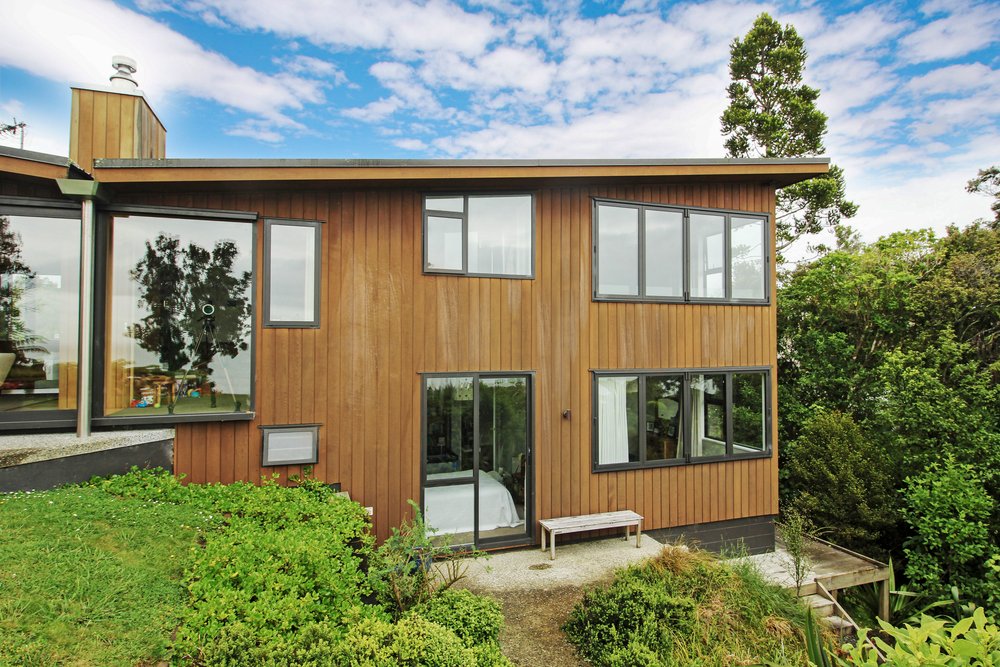
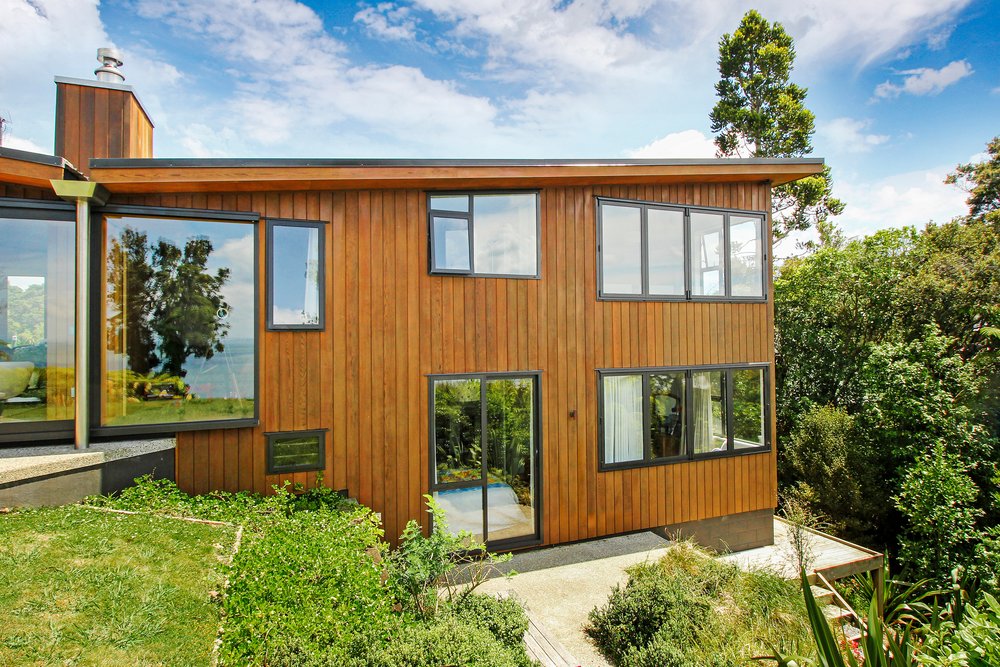
Over 9 years, the owners have spent less than $15,000 on exterior maintenance costs, which is excellent value for a property of this size.
It’s also worth noting that while the original work we did cost $5680, the recoat we did 3 years later was less than half that cost. Purely from a cost perspective, this is one of the main benefits of regular maintenance.
Looking at the before and after photos, the results speak for themselves. The washed out, dirty timber looks almost brand new after the maintenance, regaining its brown luster.



